If you have a child or children and you have been thinking about holiday camps to offer them fun and educational experiences during the summer, you might have already narrowed down your options. There are websites, brochures, and all kinds of promotional information about each Holiday camp, yet you are still unsure if any of them is the right place/environment for your kid. In this article, we will share with you 15 questions that parents should ask when evaluating summer camps as a method of helping you decide which is the best one for your children.
Topics Covered:
What is the purpose of summer camp?
Summer Camps are designed to entertain and educate children during their time out of school. They provide an encouraging and safe environment for exploration and skill development. Studies, such as this one from Waterloo University in Canada, have shown that camps can strengthen your child’s emotional intelligence, helping them overcome future emotional problems and to face troubling situations without any complication. They also help your kid develop their independence by being away from home for some time. All in all, the benefits of summer camp are many.
What makes a good summer camp?
This is another frequent question when evaluating summer camp options. Your child’s interests and personality have a lot to do with what Holiday camp is better suited for them, yet, there are 5 qualities to look out for to determine if a summer camp is good for them:
1. Health and Security
While looking for information on the camp, check their information on safety and health. Take a look at their menu, the amount of outdoor and sportive activities, and the number of adults per child. The best summer camps provide this info in detail so their parents feel safe when sending their kids for them to look after.
2. Costs
First, you should be clear on the budget you have, how many kids you are sending, and how much you are willing to afford. A high price doesn’t mean anything if the other qualities are absent, so don’t waste money on costly options if you are not confident about the camp’s program.
3. Place
A quick google search should give you an insight into where the camp is located. This is important for many reasons. Firstly, you can see the site’s conditions to check that everything looks fine. Secondly, the distance might be important if you are nervous about your kids being away for too long. In case of any emergency or an uncomfortable situation, places at a short drive distance are an advantage.
4. Program
This one is closely related to your kid’s personality and interests, as mentioned above. Check if the program is remote or on-site. Check what activities are available. Discuss with your child what they want to do and how the programs are suited for them.
5. Cultural Approach
Camps are much more than a couple of days away to do fun activities. They are places to learn useful skills for life, such as discipline and how to relate with others. Check what the holiday camp has to say about these values, or what kind of schedules they have to evaluate if your child can profit from it.
What is the potential danger of summer camp?
It is important to discuss this to avoid any misconceptions. Whilst camps will have adults to look out for children and safety measures are taken to minimize any risk possible, there are potential dangers that a child might encounter during summer camp. This may also vary depending on the different types of camps (swimming, mindfulness, youth, etc.), so every camp’s hazards should be considered in those terms.
That said, parents shouldn’t worry too much about this to the point of not letting their kids go to summer camp because potential dangers are outweighed by the many benefits. These dangerous situations rarely occur, and there are ways to mitigate the risk, making the best out of any complicated situation. Plus, the staff are properly prepared to face them, so they know what to do if things turn risky.
In the interest of sharing information and being prepared for everything, here are some of the most common camp injuries. Camp organizers are well aware and are prepared to treat them.
Most common camp injuries
- Illness (any virus going around, food poisoning, heat, or sunstrokes)
- Falls and collisions resulting in ankle twists or leg/arm fractures
- Burning (from the sun, from fire, etc.)
- Cuts (from trees, knives)
- Rashes and bites (from ivy, animals, insects, etc.)
15 Questions to Ask When Evaluating Summer Camps
Let’s move to these questions every parent should have in mind to make sure they choose the right Holiday camp.
- Is the camp in my child’s best interest?
- What do you expect my child to learn from camp?
- How many kids attend this camp?
- Will anyone that my kid knows be attending?
- Do I know anyone who went to this camp?
- How long is the camp?
- What values are observed in the camp’s program?
- What do I know about the camp’s safety?
- Is there a follow-up edition of the camp next year?
- Where is the camp located?
- Are there any hidden costs?
- How many adults will be supervising?
- What are the camp’s food options?
- What’s the entry level for this camp?
- What is the camp’s stance on bullying?
1. Is the camp in my child’s best interest?
An unmotivated child won’t take anything from a camp based on something he doesn’t like. Even though they are great opportunities for them to learn about topics for their future (such as STEM), make sure the subject is enticing for them. Sending a kid to camp for the sole reason of giving him/her an activity is not good enough to do so, as the learning potential is the most important question.
2. What do you expect my child to learn from camp?
Tied to the first one, camps go far beyond teaching arts, sports, and disciplines. They are lessons on friendship and makers of long-lasting memories, things that are not easily obtained. Local or national camps might make a difference in terms of mixing children of diverse backgrounds.
3. How many kids attend this camp?
Ask this question with your child’s personality in mind. Maybe, crowded camps can overwhelm your shy kid, looking for a more intimate experience, or, on the contrary, a numerous group can help him/her blend in better, getting to know more children in his/her situation.
4. Will anyone that my kid knows be attending?
A schoolmate, a sibling, or a cousin can ease your kid’s way through summer camp. Talking about camp with other parents might make for a larger group of acquainted kids attending and being there for each other.
5. Do I know anyone who went to this camp?
This one is crucial for unnerved parents. Knowing someone who already went makes for a great conversation to investigate the camp experience in advance.
6. How long is the camp?
For younger kids, shorter periods away from home might be easier to endure. For older ones, a longer experience can be beneficial to develop their sense of independence.
7. What values are observed in the camp’s program?
As described before, kids learn much more than being good at a hobby or activity. Explore the information available and read between lines on more vital values that your child should start maturing, such as discipline, resiliency, decision-making, relationships, etc.
8. What do I know about the camp’s safety?
Questions such as the composition of the medical team in charge, or the security surrounding the camp’s perimeter should be raised. Every piece of information you learn about this should make you feel more at ease.
Continuity is a great benefit for kids attending summer camp. It’s something to look for in the next year and an opportunity to keep on improving his/her skills. Have this one in mind while evaluating camp options.
9. Is there a follow-up edition of the camp next year?
Continuity is a great benefit for kids attending summer camp. It’s something to look for in the next year and an opportunity to keep on improving his/her skills. Have this one in mind while evaluating camp options.
10. Where is the camp located?
We discussed this one as a good quality. The camp’s location and its surroundings let you know how easy it is to access in case of any emergency, such as having to go to a nearby hospital or to fetch your child if homesickness becomes too unbearable.
11. Are there any hidden costs?
This one is especially useful for summer camps that involve activities with equipment. Swimming, music, robotics, and many camps may need certain elements in advance so your kid can be part of it. Check with the organizers about what is provided and what is included in the fee.
12. How many adults will be supervising?
This is a good question to check with the people in charge of the organization. Though certain regulations define this number, each camp may change the ratio of adults per child depending on the activity. If there are more adults, your kids might have a more personalized experience, yet this might reduce the sense of freedom if that is something important that you want your kids to learn.
13. What are the camp’s food options?
Camps are usually very careful in this aspect. They tend to make a point of teaching kids healthy eating habits. Still, checking this or inquiring about it is important to ensure your child incorporates good nutrition.
14. What’s the entry level for this camp?
This one is valid for camps with continuity that are aimed at developing a certain skill (i.e., a sport). Sending your kid to one that is too advanced (or too easy) for him/her can be a frustrating situation, so keep that in mind.
15. What is the camp’s stance on bullying?
In these times when bullying is recognized as a real issue that takes a toll on children’s mental health, asking about this is important. You probably don’t need an elaborated protocol about it, but parents will feel more at ease as long as they learn that the camp’s organization acknowledges its importance and has a policy or an elaborated idea on how to handle it.
Closing Thoughts on Questions to Ask When Evaluating Summer Camps
We hope the above questions make the process of reviewing camps and deciding easier for you. The point is to make the process simpler and to avoid worrying too much, as sending your child to summer camps will undoubtedly be a good experience and a valuable lesson for them. The questions should help you feel reassured when making this decision, as most camps are well-prepared to receive your kids, as you will be leaving them in good hands. Speaking of options for Holiday camps,
The Mindful Camp offers holiday programs so your child can develop a healthy and adventurous relationship with nature as well as experience mindfulness at a young age. Aimed at children aged 9 to 12, children will enjoy a survival experience in the wild (adapted to their age) and create memories that will last for a lifetime. The Mindful Camp is backed by a team of trained professionals that will guide your kid in a natural environment designed for growth, connection, and play, all year round.

